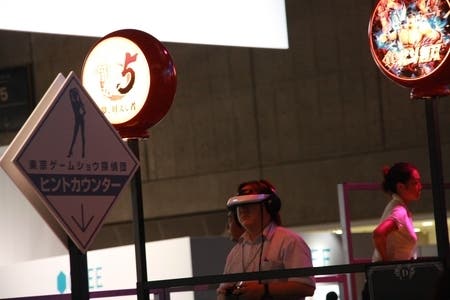The truth about Japan: a postcard from the Japanese games industry
It's been pronounced dead countless times in recent years, but what's really going on in Japan?
"Japan is over. We're done. Our game industry is finished."
Keiji Inafune's outburst in 2009 has long passed into infamy, but three years on and his words still hang over the Tokyo Game Show like a cloud. The Makuhari Messe, a dull grey mesh of concrete walkways that looks like the backdrop for a Power Rangers fight scene, no longer feels like the centre of the universe for those few days in September. It's oddly and almost perfectly quiet.
For a western game-playing audience, TGS and by extension Japan was once the place to look to for a slice of their interactive future; in the '80s through to the '90s the country produced the boldest and the best arcade games, and from the '90s to the turn of the century it's where the prettiest, smartest and most enchanting console games were being made.
But that perception's slowly shifted in recent years. Japan's significance to a western audience has seemingly diminished, the likes of Skyrim, Call of Duty and Battlefield taking precedence while fading stars such as Final Fantasy and Resident Evil fade ever faster at the hands of developers who have struggled with the current generation of consoles.
It's a widely held notion, and one that Inafune, for all his grandstanding, seems resigned to. On the eve of the show, he reveals part of his own plan to revive the industry: a zombie-infested Ninja Gaiden spin-off delivered in partnership with Spark Unlimited. "It's not an easy task," he says almost sheepishly after the announcement, "but there are publishers like Koei Tecmo that are willing to work with me. With things like that hopefully we can bring the dead industry back to life."
What happened to the Japanese games industry, and where is it heading? Eurogamer canvassed opinion at last month's Tokyo Game Show to find out.
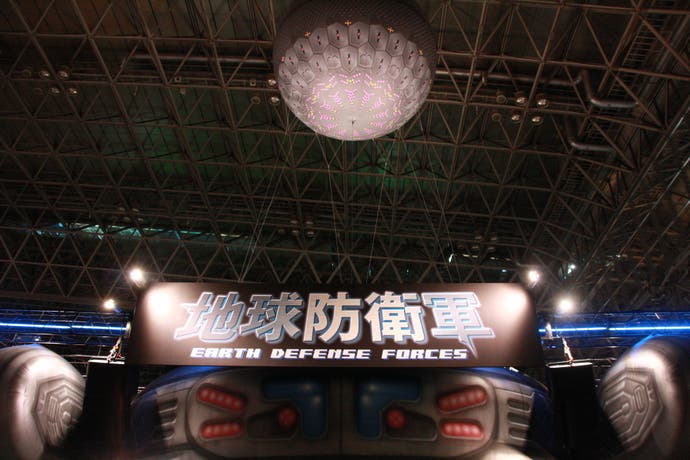
"The show was a little underwhelming," Q Games' Dylan Cuthbert, a veteran of the Japanese industry with over 20 years experience under his belt, agrees in the wake of the event. "It's a little worrying too, because of the huge presence of Gree and other mobile publishers. I don't think anyone goes to TGS to see mobile games."
"I thought that the publishers who were there, like Capcom and Sega and Square Enix and Konami had some good stuff to show," Dylan's colleague James Mielke adds. "The show just needed more of that level of presence. But there really aren't that many game publishers left here beyond Sony and Nintendo."
Nintendo, as is its general policy, does not attend the show - but for the first time since the Xbox brand was launched Microsoft also chose not to turn up. An acknowledgement, perhaps, of the Xbox's failure in Japan - a subject to be explored in a future feature - Microsoft's absence means there's next to no western presence at the show.
It makes for a muted presence for TGS on a global scale, although that's in keeping with what's been a muted year for the industry across the board. "I think we're in that latter period where all eyes are on next-gen things, like the Wii U, and the theoretical future consoles," says Mielke. "Gaming has become so diluted, everything's multi-console, that there are very few surprises these days, and therefore less excitement. The Japanese market in itself is a very complex issue, but the biggest factor, I think, is the comfort zone the industry is in at the moment. New IPs rarely surface late in a console cycle."
So it probably shouldn't be a surprise that TGS is dominated by homegrown games made for a home audience - which, again, isn't exactly surprising at a show that's aimed squarely at Japanese consumers. But this year the biggest games - Monster Hunter 4, the Lost Planet spin-off EX Troopers and a clutch of Level 5 3DS titles - will likely never make it outside of Japan, and if they do their impact will be minimal. The days of a globally relevant Japanese-produced game, if not necessarily numbered, are certainly not in evidence here. Is it fair to say, then, that Japan's not as influential as it once was?
"Japan did something very, very wrong. They forgot who they were." Gavin Moore
"I think that maybe we overstated their influence in the console world," says Monkey Paw's John Greiner, a man who previously headed up the sadly departed Hudson before starting his current venture, unearthing and re-releasing classics on the PlayStation Network. "They were always really created for the Japanese market - it's only been recently that companies like Capcom and Konami have really focused on the world market, so because their console market is always supported by a certain percentage of a much smaller population, so as the market goes they need to expand overseas.
"They've tried to do that, but traditionally Japan's always made games for its own market, but traditionally we've been infatuated with that style of development and their dedication to detail and the attention to that that made the games somewhat special. The balance and charm of Japanese games is something unique, but it was never meant to be global."
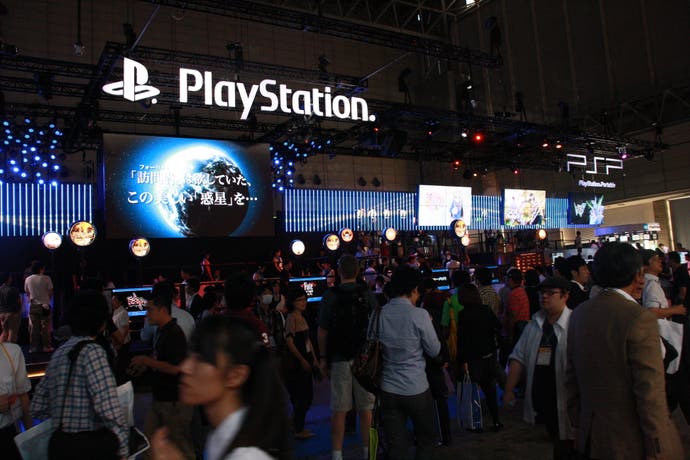
Japan's problem may not have been a lack of global influence, however. Some are convinced that the problem this generation has been the influence of other games. "Japan did something very, very wrong," says Gavin Moore, producer on Sony's Japan Studio's distinctive platformer Puppeteer. "They forgot who they were. They saw these big-selling western titles and they tried to make these big-selling western titles, and they didn't have the staff and were slow to get used to the technology. They didn't use any middleware, and for those titles you have to. They spent a lot of money on it, and it bit them - and then they retreated and thought that the west didn't like their games anymore."
The creeping influence of the west on Japanese development can be seen at its most extreme in games such as Quantum Theory, and perhaps at its most damaging in Resident Evil 6, a game that in its efforts to appease a wider audience ended up falling resoundingly flat. There's a difference between western and eastern games development that doesn't look like it can be satisfactorily bridged, though there are differing opinions on where that difference comes from.
Alex Jones, producer on the forthcoming DMC and a conduit between Cambridge-based developers Ninja Theory and Capcom Japan, is well placed to offer a theory. "Japanese developers tend to work from the core out," he says. "That's to say the core of the game is Dante, so you spend a lot of time on that character and then doing the world that character lives in which should basically just be an extension of what feels right for that character.
"Western developers, however, focus from the out in. They'll say I want to build this world and it'll have this stuff in then they find a character with a gun to do things in it. Not that the characters an afterthought, but I think we deal with the big picture first then hone down on what it would feel like as a character in that world. We came at it the other way in Japan where we spend a lot of time talking about Dante before you build a world around him."
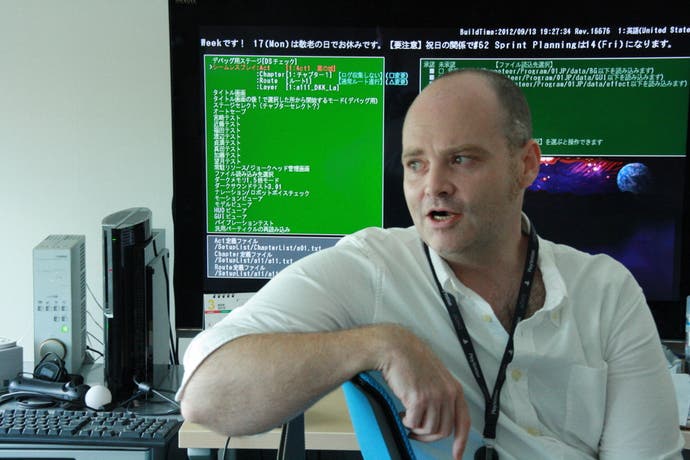
For a western developer working on a Japanese property and answering to a Japanese company, it makes for some interesting challenges. "On a production level, Japan's model is that they work on something until it's perfect," explains Jones. "Then they go and work on the next thing - and it tends to be very sequential, so at any point in time very early they have something that's perfect. Western development takes a more incremental approach across the entire game, so something isn't absolutely perfect until very late by Japanese standards."
"Western development takes a more incremental approach across the entire game, so something isn't absolutely perfect until very late by Japanese standards." Alex Jones
At the outset of DMC's development, it's a split philosophy that caused some problems. "Japan would be expecting that at some point much earlier than was going to be the case that they would see something perfect. They got it, but they're still out of their comfort zone - at any point they're looking at something and they don't know that it's all going to come together at the end, which is inevitably how any western development's going to be."
For Moore, another developer with experience on both sides of the globe having worked at Sony's London Studio on The Getaway, it's a divide he's seen manifest in other ways. "I tell you the difference between western game creators and Japanese game creators. If you tell a western game developer to do something, they'll go away and do it, and they'll do it to 75 per cent and say they've done it. Or, they'll do it to 125 per cent, and you'll say that's awesome but I didn't want you to go that far. With a Japanese game creator, if you do that they'll go away and do it to 100 per cent and it won't be any different from what you asked for."
It's a different approach that, Greiner believes, is tied into wider ideals. "They do get caught in the bubble of their own culture - it's a very homogenous society, and it doesn't allow for a form of penetration," he says. "They get many things from that but they lose many things from that isolation as a society. One of the big problems is that in the west we share so much development information, tools and everything else. Game developer conferences are a great way to share common procedures and tools to make the highest quality graphics. The Japanese don't do that - they're very protective of their development systems and they don't share, and they don't understand English enough to go to these conferences and grasp what's out there."
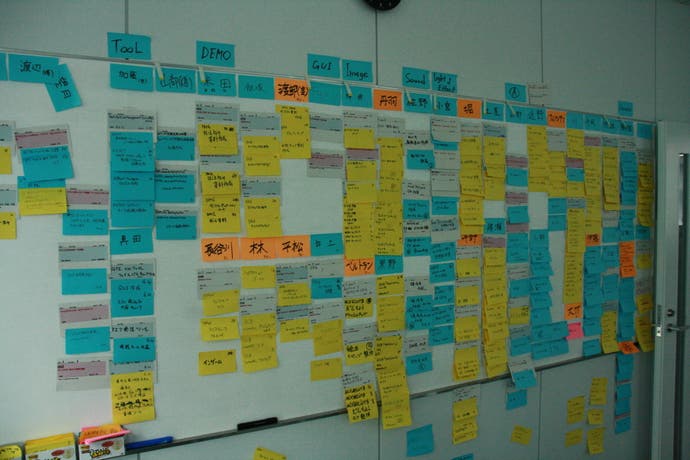
Japanese games may not be as prominent globally as they once were, but to say that they're creatively lacking is, of course, a lie. The last few years have given us the likes of Bayonetta, Dark Souls, Xenoblade Chronicles and Tokyo Jungle, while on the horizon there's Metal Gear Rising: Revengeance - games that not only stand out for being the finest of their generation but are also almost aggressively Japanese. "If you talk to gamers in the west they love Japanese games, and they don't want Japanese gamers to make western style games," says Moore. "That's what they were trying to do, but now they're coming round to the idea of doing what they want to do.
"In the past I've tried to make things that are targeted for overseas, but that hasn't always worked out so well. My intention is to make something Japanese-like, and do it well - and then people will follow." Akihiro Hino
"You take something like Demon's Souls - you think that could have been made in the west, but no one would have the balls to make that in the west. No one would make it that difficult - it's only that Japanese mentality, that old-school sense of clearing the game. And everyone in the west thought that game was awesome."
James Mielke thinks along similar lines. "What Japan has always done best is in conjuring up fantastical environments, creatures and characters. I don't think, with the exception of thatgamecompany, that you'd ever see a western developer come up with an Ico, or a Panzer Dragoon. Japan takes those things and does a good job making them cool. Of course this is a matter of perception, but Japanese devs need to get back to knowing what they do well, and embrace that."
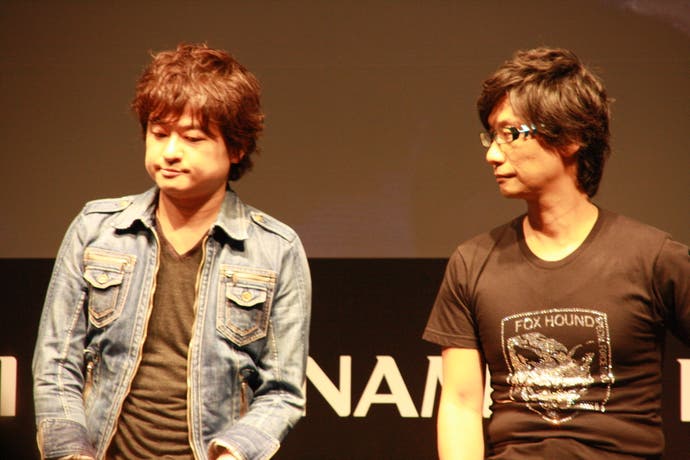
Japanese developers are starting to embrace that. Team Ninja doesn't like to be lumped in with the rest of its compatriots, and given the muscular American aesthetic of the Ninja Gaiden series that's not too much of a surprise, but it acknowledges the need for transformation. "There was a time when Japanese games were number one, but that's changed," admits Team Ninja head Yosuke Hayashi. "We need to figure out and focus on the core audience and that would get into all kinds of games. We need to be able to deliver a game that they'll definitely enjoy, and that they'll pick up. That's not about making more and more and making bigger teams - it's about shifting to be more creative and to be more unique, and to have people think 'hey that's cool, I want to play that'."
Tellingly, it's a notion that one of the most successful developers in Japan has stayed true to. "Since the titles are created in Japan, the point is to make something that would feel fantastical for a Japanese audience," says Level 5's president Akihiro Hino. "As long as that's grounded, the overseas audience will hopefully pick up on that and enjoy the game as is. In the past I've tried to make things that are targeted for overseas, but that hasn't always worked out so well. My intention is to make something Japanese-like, and do it well - and then people will follow."
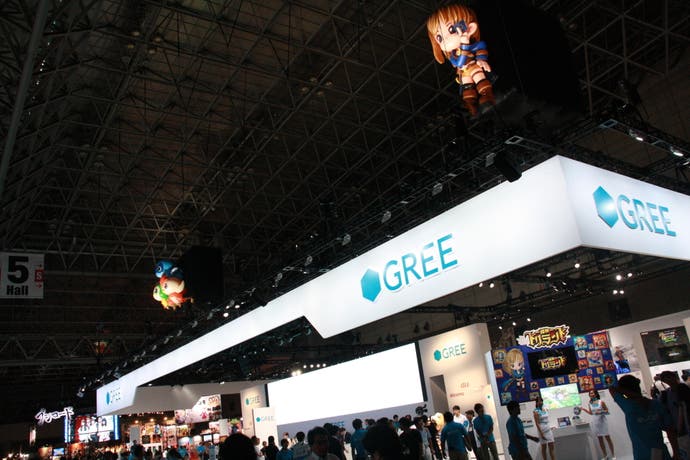
There's another side to what's going on in the Japanese games industry right now, and it comes closer to what, for a traditional western audience, may be an uncomfortable truth. Reports on the death of Japanese gaming are exaggerated and exacerbated by the melodramatic outbursts of some of its more stubborn veterans, while in the background there's a swift, almost violent change taking place.
"I think the Japanese market hasn't declined - it's just moved," says Greiner. "If you look out there, you'll see who's got the biggest booths - Gree and Dena. We've shifted from a console-dominated market to a mobile-dominated market. That's not necessarily a bad thing - I think there are some great games out there. But it might not be globally oriented games - your RPGs of old that everybody loved, your fighters and things like that doesn't necessarily translate to mobile. Gree is one of the biggest companies in the world now, so to think that the industry went away or died is false - to say that it shifted to another platform and with that platform you have different users is fair."
"I think that's really what the west wants to believe, that somehow Japanese game development is dead," says Cuthbert. "I don't think it's all that true except for a few obvious cases of companies that didn't cope with the transition."
"I don't believe for a second that Japanese game development is dead or even dying," agrees Mielke. "It's changing, for sure, but there are a lot of Japanese games here that people around the world want to play. One of the things that makes it hard, though, is that game systems have to satisfy so many more needs than just pure gaming, now. Everything has to play movies, music, play Netflix, etc. And the social conditions in each territory are so different. Try making games to satisfy all these requirements. It takes adjusting."
"Japan's changed, but it's not dead - it's just that it's more the future now than the past." John Greiner
And Japan's adjusting well. The quiet at this year's show may be a little deceptive - 2012's TGS boasts the biggest number of exhibitors and booths in four years, but the make-up has shifted dramatically. In 2010, there were 423 console and handheld games on the floor, in contrast to 141 being shown for smart phones, feature phones and tablets. This year, the number's been flipped: phones and tablets account for some 507 games, while traditional consoles and handhelds offer up a relatively slim 210 titles.
It's a change that Japan's slowly getting comfortable with, and one that Shin Unozawa, the chairman of CESA, Japan's version of UKIE, draws upon in his keynote. "The gaming industry has changed significantly. Now we should take in these changes. Games that are 60 dollars, that's no longer possible. A few years ago, social happened. Young business managers, they started utilising games - and there's a huge market in that. A 200 billion yen market."
Nintendo's began to push forward with the 3DS, offering DLC for its flagship series for the first time in New Super Mario Bros. 2. Who's to say we won't be seeing a free-to-play Nintendo game in the next few years? Japan has already seen considerable F2P success stories in the console space. Gundam Battle Operation, a free-to-play PlayStation 3 MMO from Namco Bandai, launched this June - by August it had gathered 7 billion yen, ensuring that after two months it had already covered its costs.
There's a brilliant symmetry to all of this. Japan's games industry, built on arcades that happily gobbled up 100 yen coins, is perhaps better placed than anywhere else to carve a future from micro-transactions. And perhaps rather than being concerned about the state of gaming in the east, audiences in the west should take heed and brace themselves for things to come.
"I'm often telling Americans come to Tokyo Game Show, see what's happening - this is the future," says Greiner, who with his years of experience in Japan has a clearer perspective than most. "Going to E3 this year, I've never felt after 20 plus years of going, I've never seen a more morbid show. They're making this change that the Japanese made a few years ago. In a few years, E3 will be dominated by mobile companies and free-to-play companies. Japan's changed, but it's not dead - it's just that it's more the future now than the past."
